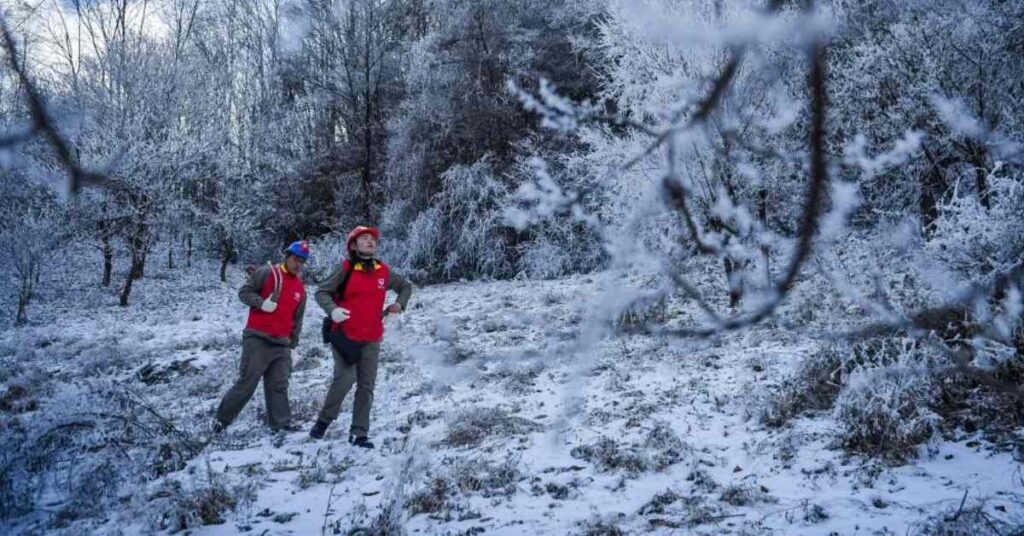Table of Contents
Introduction to Dadiyanki
Dadiyanki, also known as “Dadiyanki Village,” is a historical and cultural gem located in Nigeria. This ancient settlement, with its rich heritage and unique traditions, offers a fascinating glimpse into the past and present of the Hausa people. This article delves into the various aspects of Dadiyanki, from its historical significance and geographical features to its cultural practices and contemporary relevance.
Historical Context
Early Settlement
- Origins and Founding: Dadiyanki’s origins date back several centuries, with its founding attributed to early Hausa settlers.
- Archaeological Evidence: Discoveries in the area suggest a long history of habitation, including artifacts and ancient structures.
Evolution Over Time
- Pre-Colonial Era: Dadiyanki thrived as a bustling community with robust trade connections during this period.
- Colonial Impact: The arrival of European colonizers brought significant changes, impacting the village’s social and economic fabric.
- Post-Independence: Following Nigeria’s independence, Dadiyanki adapted to modern influences while preserving its traditional roots.
Geographical Information
Location
- Region and Coordinates: Dadiyanki is situated in the north-central region of Nigeria.
- Proximity to Major Cities: It is located near prominent cities such as Kano and Katsina.
Climate
- Seasonal Variations: The village experiences a tropical climate with distinct wet and dry seasons.
- Agricultural Implications: The climate significantly influences local farming practices and crop yields.
Natural Resources
- Land and Water: Dadiyanki is endowed with fertile soil and water bodies that support agriculture and livestock.
- Mineral Deposits: The region is also known for its deposits of valuable minerals, contributing to the local economy.
Cultural Insights
Traditional Practices
- Customs and Rituals: The residents of Dadiyanki adhere to various traditional customs, including rites of passage, marriage ceremonies, and festivals.
- Dress and Attire: Traditional clothing, such as the Babanriga and turbans for men and wrappers and hijabs for women, is commonly worn.
Language and Communication
- Hausa Language: Hausa is the primary language spoken in Dadiyanki, and it has a rich vocabulary and idiomatic expressions.
- Oral Tradition: Storytelling and oral histories play a crucial role in preserving the village’s heritage.
Cuisine
- Staple Foods: The local diet includes staples like millet, sorghum, and maize, often prepared as tuwo or fura.
- Unique Dishes: Special dishes such as kilos (dried meat) and suya (spiced grilled meat) are popular.
Must-Visit Attractions
Historical Sites
- Ancient Walls and Gates: Remnants of old city walls and gates glimpse Dadiyanki’s defensive architecture.
- Traditional Houses: The village features traditional Hausa architecture, characterized by intricately decorated facades and courtyards.
Natural Beauty
- Scenic Landscapes: The surrounding landscapes offer picturesque views and are ideal for nature walks and exploration.
- Wildlife: The area is home to various species of birds and small mammals, making it a haven for nature enthusiasts.
Activities and Experiences
Festivals and Events
- Cultural Festivals: Annual events like the Durbar Festival showcase traditional music, dance, and horseback riding.
- Market Days: Weekly markets offer a vibrant atmosphere where locals trade goods and socialize.
Craftsmanship
- Handicrafts: Dadiyanki is known for its skilled artisans who produce pottery, weaving, and leatherwork.
- Shopping for souvenirs: Visitors can purchase unique handmade items as mementos for their trip.
Travel Tips
Accommodation
- Local Lodging: Options range from guesthouses to more traditional homestays, providing a taste of local hospitality.
- Modern Amenities: While amenities may be basic, some accommodations offer modern conveniences.
Transportation
- Getting There: Access to Dadiyanki is primarily via road, with local transport options including buses and motorcycles.
- Navigating Locally: Within the village, walking or cycling is the best way to explore and interact with the locals.
Packing Essentials
- Climate-Appropriate Clothing: Light, breathable fabrics for the day and warmer layers for cooler evenings are recommended.
- Health Precautions: Carry essential medications and insect repellent, and ensure vaccinations are current.
Safety and Health Precautions
General Safety
- Community Policing: Dadiyanki has a relatively low crime rate, with community policing ensuring safety.
- Travel Advisories: Always check current travel advisories and local guidelines before visiting.
Health Services
- Medical Facilities: Basic healthcare services are available, but serious conditions may require travel to a nearby city.
- Preventive Measures: Drink bottled water, avoid street food, and practice good hygiene to prevent common illnesses.

Budget Planning
Cost-Effective Travel
- Budget Accommodations: Choose affordable lodging options and dine at local eateries to save costs.
- Transportation Savings: Use public transport and negotiate fares in advance to avoid overpaying.
Financial Tips
- Currency and Exchange: The Nigerian Naira (NGN) is the local currency. It’s advisable to carry cash, as card facilities may be limited.
- Bargaining: Bargaining is common in markets and can help you get the best prices.
Local Cuisine
Must-Try Foods
- Jollof Rice: A popular West African dish, Jollof Rice is a flavorful mix of rice, tomatoes, and spices.
- Miyan Kuka: A traditional soup made from baobab leaves, often served with tuwo.
Dining Experiences
- Local Restaurants: Enjoy meals at local eateries where traditional recipes are preserved.
- Home-cooked meals: Experience authentic flavors by sharing a meal with a local family.
Conclusion
Dadiyanki uniquely blends historical significance, cultural richness, and natural beauty. Whether you are exploring its ancient sites, partaking in local festivals, or savoring traditional cuisine, the village provides an immersive experience that reflects the heart of Hausa culture. As you plan your visit, keep in mind the travel tips and safety precautions to ensure a memorable and enriching journey.
Latest Posts [https://besaras.com]










